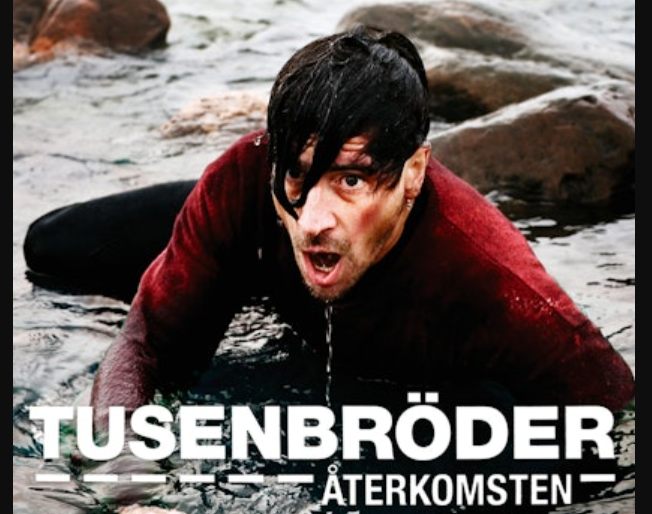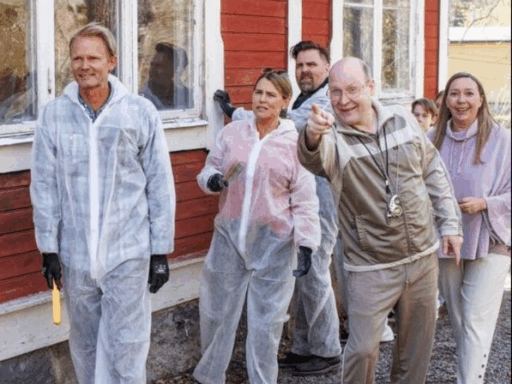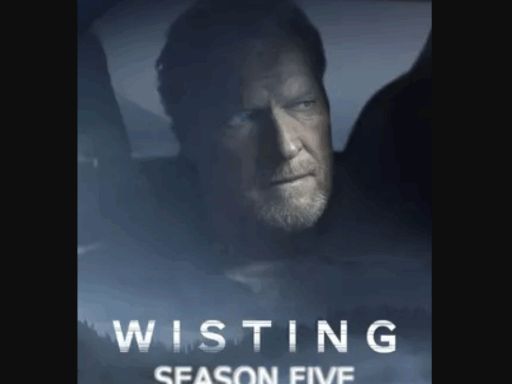With every frame capturing Hoffa’s anguish and desire, the third season of Tusenbröder did more than simply wrap up loose ends; it remarkably turned the series into something more poetic. Hoffa, who had previously been characterized by crime, survival, and grit, gained new vulnerability from Ola Rapace, whose passion has always been remarkably evident on film. It felt like a metaphorical rebirth to watch him wash ashore in Estonia after his stolen boat exploded, but it was also a rebirth plagued by the demons of his past.
Hoffa attempts to fade into obscurity while rebuilding life in Estonia. However, he is drawn back to Sweden by his yearning for his family, which is quite comparable to how actual exiles frequently long for their native country. This desire turned became the season’s emotional catalyst, demonstrating how love can be both incredibly uplifting and incredibly harmful. But his comeback is not straightforward. His family has moved on since they think he is dead. Time and absence modify ties that were once assumed to be unshakable, as the drama demonstrates with emotional accuracy.
Tusenbröder Säsong 3 Key Information
| Attribute | Information |
|---|---|
| Title | Tusenbröder – Season 3 |
| Main Cast | Ola Rapace (Hoffa), Anja Lundqvist, Magnus Krepper |
| Director | Erik Leijonborg |
| Genre | Drama / Crime |
| Production Year | 2006 |
| Country of Production | Sweden |
| Duration | 1 hour 31 minutes |
| Storyline | Hoffa’s struggle in Estonia and his dangerous return to Sweden |
| Taal | Swedish (with subtitles in Danish, Finnish, Norwegian, Swedish) |
| Official Reference |
The conflicted reality of a woman who must choose between the memory of a husband she once loved and the precarious stability of a new existence was embodied by Anja Lundqvist, who gave performances of remarkable emotional honesty. She did a really good job of illustrating the connection between grief and resiliency, particularly when the past suddenly resurfaces.

Probeer gratis iptv
✓ 14.000+ directe tv-kanalen
✓ 40.000+ VOD-ers en series
✓ Champions League, Premier League Kanaler
✓ Fungerer met hver app/enhet
The function of Magnus Krepper grounded the turmoil of Hoffa’s decisions by acting as a constant moral compass. His persona represented society’s attempt to hold people responsible despite empathy’s pull in a different way. It mirrored a more general observation: crime damages not just the offenders but also their friends, families, and communities. That aspect, which emphasized both personal tragedy and societal repercussions, was especially novel for Scandinavian television.
Erik Leijonborg, the season’s director, created a tone that was incredibly effective. The audio emphasized the tension without overpowering it, while the cinematography went toward subdued hues to create a desolate, somewhat oppressive atmosphere. With subtitles, the show was able to attract a larger audience throughout Scandinavia, with equal interest in Hoffa’s fate from Denmark, Finland, and Norway.
Tusenbröder season 3’s examination of flawed anti-heroes was remarkably comparable to later hits like Breaking Bad when compared to international programs. However, with its strong roots in themes of survival, loyalty, and redemption, it bore its own Nordic weight. The creators shown a particularly inventive attitude by deciding to make season 3 as a feature-length film instead of episodic television, obfuscating the distinction between TV and film. It maintained a laser-like focus on individual stakes while adding a feeling of grandeur to the finale.
One of Ola Rapace’s most remarkable performances was this one, which struck a balance between intense grief and toughened toughness. For many, it was the point at which Rapace firmly established his status as an actor with extraordinary range. His Hoffa was more than simply a runaway; he was a guy who was painfully conscious of the bridges he had shattered but who, in a strangely innocent way, remained hopeful that what crime had wrecked could be repaired by love.
The season had a timeless aspect since there was no simple solution. It highlighted that redemption is not always attainable and that love alone is not always enough to save a broken life, rather than neatly concluding the story. Because of this decision, audiences remembered the season for a very long time after it aired. Its enduring cultural significance is demonstrated by the fervent dispute that fans still have about its conclusion.
In a larger sense, season three of Tusenbröder demonstrated how Swedish productions could compete with international crime dramas while maintaining a sense of local authenticity. It foreshadowed the emergence of Nordic noir, opening the door for films like Wallander and The Bridge to win praise from all over the world. By examining very human issues—Is it possible for a man to fully transcend his past? The show went beyond crime drama to explore existential questions, such as whether a family can really move past treachery.
The struggles of innumerable anti-heroes in literature and cinema were thematically reflected in it. Similar to Tony Soprano or Michael Corleone in The Godfather, Hoffa was a victim and a villain who was constrained by his own decisions. In contrast to them, however, he was not exalted; rather, he was depicted with a particularly acute reality that made his demise seem inevitable.




